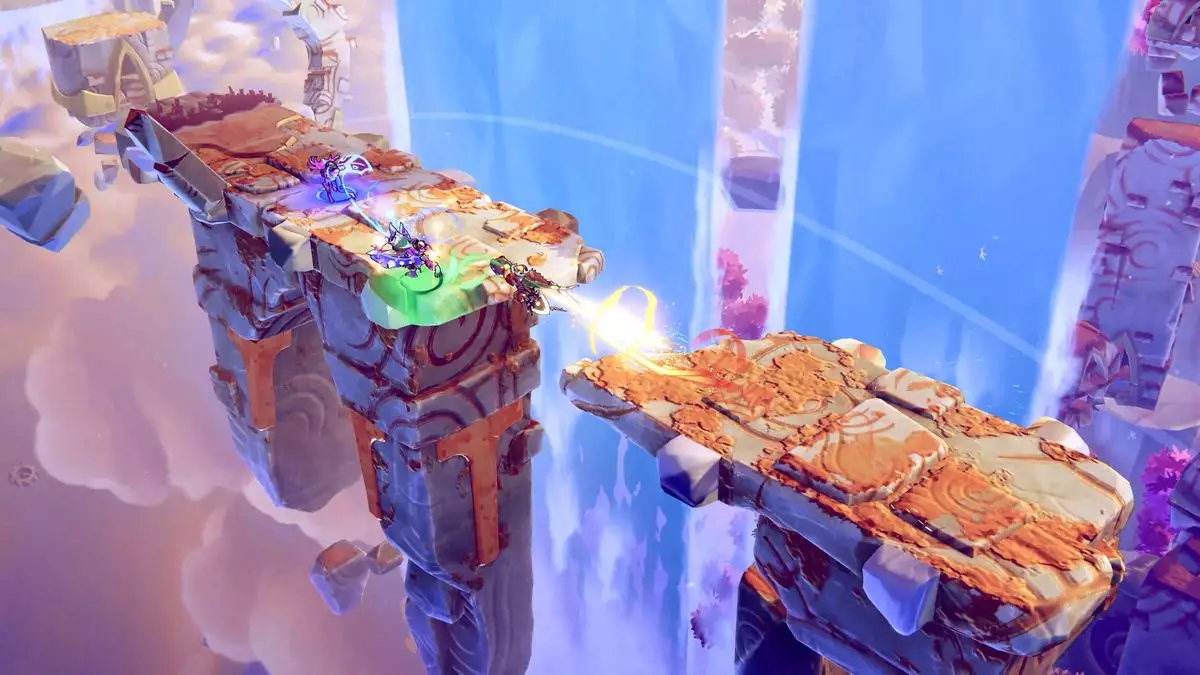In the ever-evolving landscape of video game development, the importance of player feedback cannot be overstated. Motion Twin, the talented creators behind the critically acclaimed *Dead Cells*, have recognized this essential aspect of development as they embark on their latest project, *Windblown*. Rather than attempting to develop in isolation, they are once again opting for the early access model, which allows them to harness the insights and reactions of players during the game’s development phase. This focus on interaction exemplifies how modern game studios can create successful titles that resonate with their audience by adeptly blending creativity with community engagement.
Developer Thomas Vasseur articulated this concept elegantly when he noted, “I think it’s players that give us feedback… players are very, very helpful to make games like that.” This statement encapsulates the transformative power of feedback, emphasizing how developers can shape a game’s experience through active collaboration with their players. The early access strategy provides valuable insights that can refine gameplay mechanics, narrative arcs, and overall player engagement—essentially laying the groundwork for a compelling gaming experience that is tailor-made to meet the wishes and expectations of its audience.
The journey of *Windblown* has already seen proactive steps taken by the development team. Prior to the game’s official early access launch set for October 24, a closed alpha test allowed approximately 200 to 300 players to deeply engage with the game and provide critical feedback. The data collected from these sessions has proven indispensable, informing the development team about various aspects, from weapon usability to shop mechanics. The influence of these early players on the game is significant, revealing a keen awareness from the developers regarding the importance of user input in various stages of the game’s evolution.
Yannick Berthier emphasized the remarkable impact that just a few players can have, articulating, “They already shaped the game in a lot of ways, in a lot of systems, even small, just funny stuff that makes the overall experience really cool or memorable.” The collaborative spirit between the developers and players showcases how even minor tweaks and suggestions can culminate in a product that feels polished and engaging—a testament to the sound philosophy of embracing player feedback as a cornerstone for development.
While early access may seem like an ideal solution for many developers, Vasseur cautioned that it is not a one-size-fits-all strategy. Each game genre comes with its unique challenges and demands. The roguelite genre, for instance, is particularly suited for early access due to its inherent replayability and modular design. This format allows developers to innovate and adapt their content dynamically, addressing player preferences as they arise.
Conversely, genres such as narrative-driven games or Metroidvania titles pose specific challenges when considering player involvement during development. It is crucial for developers to recognize these limitations; for instance, modifying a character’s moveset in a Metroidvania would require a complete overhaul of level design, which may not be feasible or desirable in the early access environment. The complexity of intertwining gameplay elements necessitates careful consideration of how changes will affect the game’s overall integrity.
In the evolving conversation about game development frameworks, the concept of modularity re-emerges as a critical element in creating an adaptable game. Berthier noted, “Yeah, the more modular the game systems, the more you can add, remove,” highlighting that flexibility in design allows developers to iterate more smoothly based on player feedback. This adaptive approach can significantly ease the burden of updates and alterations necessary during the early access phase. By constructing games that can accommodated varied gameplay aspects seamlessly, Motion Twin is setting itself up for greater success in refining *Windblown* with ongoing player interaction.
Ultimately, the commitment to continuous improvement through player input is a hallmark of savvy game development in today’s landscape. The journey of *Windblown* not only exemplifies the best practices of engaging the community but also underscores the potential pitfalls that developers must navigate as they seek to elevate their gaming experiences. Through frameworks that embrace feedback and foster collaboration, studios like Motion Twin can yield titles that not only captivate players but also stand the test of time.

